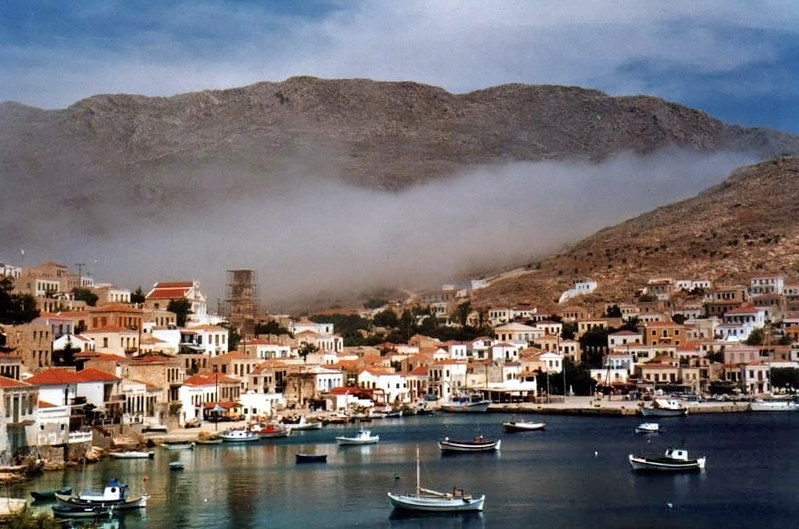Greece’s Ministry of the Environment and Energy has signed a memorandum of understanding for a project it hopes will kick-start the effort to power its small islands with green energy.
The Halki project is part of a national strategy to replace island diesel power generation by either linking territories to the mainland grid or establishing green energy communities.
The Halki project
The small island of Halki, in the southeastern Aegean, near Rhodes, has a permanent population of around 500 and is powered mainly by diesel generators installed on its larger neighbor.
With neither Rhodes nor Halki connected to the mainland grid, the agreement signed in Athens on Friday will establish a 1 MW solar farm to generate the latter's electricity.
Halki will also receive electric vehicles (EVs), charging points and a 5G telecommunications network under the plan, with all the infrastructure provided for free.
Alexandra Sdoukou, secretary general for energy and mineral resources at the ministry, told pv magazine state-owned electric utility the Public Power Corporation will donate the solar panels and inverters, as well as five EV chargers.
French company Akuo Energy and British-owned Omexom will develop the project by carrying out work from licensing to building and operating it. The companies will also improve Halki’s street lighting.
Vodafone Greece will install the 5G network and has plans to add solar mobile phone chargers on the island.
The ALD Automotive France fleet management and vehicle leasing company owned by investment bank Société Générale, and the Greek dealer which distributes Citroen cars in the country, will donate EVs to the Halki municipality and police and coast guard service. Residents will be offered discounts on EVs too, under the plan.
Ownership of the solar farm, municipal EVs and 5G network will pass to the new energy community comprised of the local authority and residents, said secretary-general Sdoukou, who suggested the donations by the private companies could be in line with their corporate responsibility programs and/or to raise brand awareness.
The 1 MW solar project, designed in line with the island's generation requirements, will operate under Greece's virtual net metering program, which enables bodies such as municipalities, schools and universities to generate solar power far from the points of electricity consumption.
Popular content
The GR-Eco Islands Initiative
The Halki project has been conceived as part of a wider government program to ‘green' the nation's numerous small islands.
The nearby island of Tilos has hosted a clean power mini-grid which features battery storage, for three years. Athens-headquartered Eunice Energy, which owns the mini-grid, told pv magazine the system has surpassed all expectations, making Tilos Greece’s first smart energy island.
Despite the success of the Tilos system, though, it has not been replicated elsewhere, and Sdoukou said her ministry is determined the Halki project will not be similarly ignored.
“Halki is only the beginning, it is the testbed for our new GR-Eco Islands Initiative, that aims to link the private sector to the local communities, encouraging them to work together and find common solutions that foster new technologies and low-carbon energy practices,” she said.
While the residents of Halki will go green largely free of charge, however, Sdoukou warned that may not be the case in future projects, with the energy ministry seeking to identify similar communities which would be happy to work with private sector companies to introduce community energy systems.
The secretary-general said she has been working closely with the EU’s directorate-general for regional and urban policy to develop the island initiative and the plan is to finance it via the bloc’s European Structural and Investment Funds, with the business models for island energy communities yet to emerge.
Crete’s subsea cable starts commercial operation
Meanwhile, Greek prime minister Kyriakos Mitsotakis tweeted on Saturday that the new subsea electricity cable linking the country’s biggest island, Crete, to the mainland grid, has gone into commercial operation.
The country has already connected a number of the Cyclades Islands to the mainland grid using a subsea cable, with only one section of that project still under construction, and pv magazine has previously reported on the Crete grid link, which is said to feature the world’s longest operational subsea AC cable.
The government has said its plan to reduce diesel generation on the Greek islands can benefit all the nation's electricity consumers as the cost of diesel is shared between all customers.
This content is protected by copyright and may not be reused. If you want to cooperate with us and would like to reuse some of our content, please contact: editors@pv-magazine.com.


5 comments
By submitting this form you agree to pv magazine using your data for the purposes of publishing your comment.
Your personal data will only be disclosed or otherwise transmitted to third parties for the purposes of spam filtering or if this is necessary for technical maintenance of the website. Any other transfer to third parties will not take place unless this is justified on the basis of applicable data protection regulations or if pv magazine is legally obliged to do so.
You may revoke this consent at any time with effect for the future, in which case your personal data will be deleted immediately. Otherwise, your data will be deleted if pv magazine has processed your request or the purpose of data storage is fulfilled.
Further information on data privacy can be found in our Data Protection Policy.